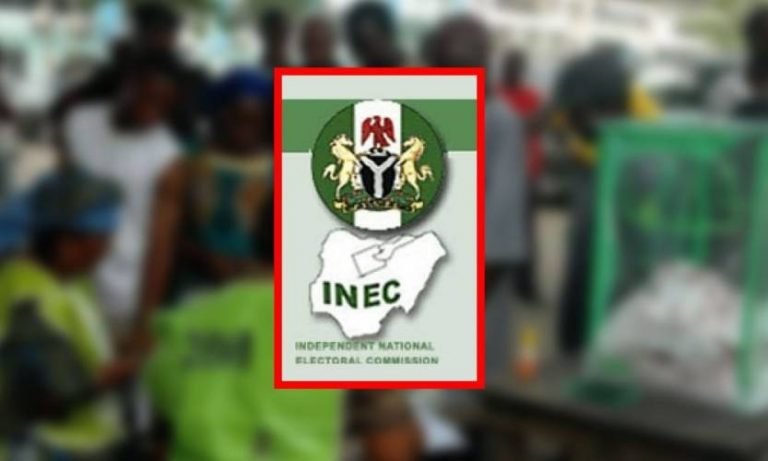NIN Not a Precondition for Prospective Voters – NIN
The Independent National Electoral Commission (INEC) Saturday dismissed speculations that the National Identity Number (NIN) was a prerequisite for registration by prospective voters, saying there was nowhere in the constitution of the Federal Republic of Nigeria where such a condition was stipulated.
The commission also said it was not willing to share its constitutional duties in the registration of voters for the forthcoming elections in the country with any government agency.
Refuting a story by a national newspaper (not THISDAY), that prospective voters must henceforth possess the National Identity Number, INEC National Commissioner in charge of Voter Education, Information and Publicity, Festus Okoye, dismissed the report outright.
According to him, “Sections 77(2) and 117(2) of the Constitution and the equivalent provisions in sections 132(5) and 178(5) gives the Commission the exclusive power and vires to carry out the registration of voters and it does not share this power with any other Commission, Agency or organ of government.
“INEC is a constitutional body and its activities are provided for, regulated and circumscribed by the Constitution of the Federal Republic of Nigeria, 1999 (as amended). Its procedural approach to the performance of its constitutional duties is also regulated by the Electoral Act 2010 (as amended) its Regulations, Guidelines and Manuals.
“The powers of the Commission regarding the compilation, maintenance and updating of the voters’ register are constitutional and statutory and it does not share this duty and responsibility with any other organ or agency of the government and no organ of government or agency or party can impose additional registration conditions above and outside the ones imposed by the constitution and the law.
“The Commission on its own part and in the performance of its duties cannot impose additional conditions for the registration of voters above and in excess of those already imposed by the constitution and the law. The law and the constitution make it mandatory that there cannot be registration by proxy and that registration can only be carried out in places and venues designated by the Commission and that those that possess any of the requirements in section 10 of the Act must be registered.
“No provision of the Constitution or the Electoral Act makes the possession of National Identity Number (NIN) compulsory for voters’ registration. A registrant that is not under a legal or constitutional disability and presents a birth certificate to a registration officer will be registered.
“A registrant that produces a baptismal certificate or a national passport, National Identity Card or Drivers License will be registered. A registrant that provides any other document that proves his or her identity, age and nationality will be registered.
“The Commission will not make any of these documents compulsory, because the Constitution and the Law have not made any of them compulsory. Presently, the Commission has the largest database of Nigerians with 84, 004,084 registered voters,” he said.
Okoye explained further that the commission was working at expanding voter access to polling units preparatory to the acquisition and rolling out of INEC Voter Enrolment Device (IVED), which will enable the Commission revalidate the voters roll and carry out an effective and efficient voter’s registration exercise that meets the requirements of the National Digital Identity Ecosystem.
He stated that Section 77(2) of the Constitution provides that every citizen of Nigeria, who has attained the age of eighteen years (18) residing in Nigeria at the time of the registration of voters for purposes of election to a legislative house shall be entitled to be registered as a voter for that election.
“The equivalent provision in section 132(5) provides that every person, who is registered to vote at an election of a member of a legislative house shall be entitled to vote at an election to the office of President.”
His words: “The combined provisions circumscribe the threshold for voter’s registration to three key components. 1. A registrant must be a citizen of Nigeria, 2. The person must have attained the age of eighteen years and 3. The person must be residing in Nigeria at the time of the registration of voters.
“Part 1 of the Third Schedule to the Constitution and section 9 of the Electoral Act 2010 (as amended) provides that INEC shall arrange the conduct of the registration of persons qualified to vote and prepare, maintain and revise the register of voters for the purpose of any election under the Constitution.
“On procedural matters and logistics, section 10 of the Electoral Act, 2010 (as amended) provides that each applicant for registration under the continuous registration system shall appear in person at the registration venue with any of the following documents: (a) Birth or baptismal certificate, (b) National passport, identity card and (c) Any other document that will prove the identity, age and nationality of the applicant.
“Furthermore, section 14 of the Act obligates a registration officer, in the performance of his duties to demand from any applicant the information necessary to enable him ascertain whether the applicant is qualified to be registered as a voter.”
He assured Nigerians desirous of being registered that, “The Commission is working hard to ensure that the revalidation of the voters’ roll is, seamless, effective and efficient and that the continuous registration of voters captures all Nigerians that have attained the age of eighteen (18) since the last registration of voters. We encourage Nigerians to be law-abiding and carry out their civic responsibilities and obligations.” (Thisday)


